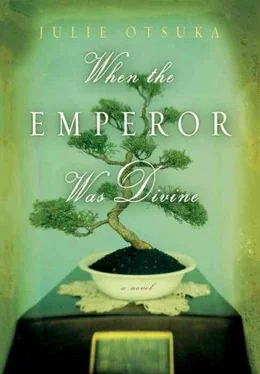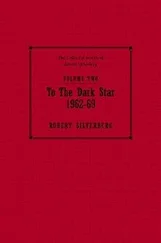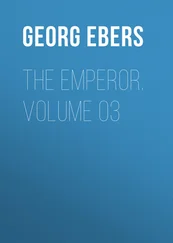“Of course I’m all right,” said the girl. “I just want a glass of milk.” She reached out into the darkness and ran her fingers along the smooth siding of the train. “Where’s White Dog?”
“We couldn’t take him with us.”
“Where is he?”
“We left him at home. We’re on the train.”
The girl sat up in her seat and grasped her mother’s hand. “I dreamed about Papa,” she said. “He was wearing his fancy French shoes and we were in a boat going to Paris and he was singing that song again.” She began to hum because she could not remember the words.
“‘In the Mood,’” her mother said.
“Yes, that’s it, “‘In the Mood.’”
“What kind of boat was it?” the boy whispered.
“A gondola.”
“Then you were in Venice.”
“All right,” said the girl, “let’s just say that I was.” She pulled back the shade and looked out into the black Nevada night and saw a herd of wild mustangs galloping across the desert. The sky was lit up by the moon and the dark bodies of the horses were drifting and turning in the moonlight and wherever they went they left behind great billowing clouds of dust as proof of their passage. The girl lifted the shade and pulled her brother to the window and pressed his face gently to the glass and when he saw the mustangs with their long legs and their flying manes and their sleek brown coats he let out a low moan that sounded like a cry of pain but was not. He watched the horses as they galloped toward the mountains and he said, very softly, “They are going away.” Then a soldier with a flashlight and a broom came walking down the aisle. The girl let the shade fall back against the glass and told the boy to return to his seat.
“Where’s that brick?” asked the soldier. “Over here,” someone answered. The girl sat quietly listening to the soldier sweeping up the shards of broken glass. “Shades down,” she said to herself. “Shades down.” Then she closed her eyes and she slept.
SOMETIME DURING THE NIGHT the train entered Utah. It crossed the barren stretch of the Great Salt Lake Desert and then the Great Salt Lake itself. The lake was dark and shallow and had no outlet to the sea. It was what it had always been—an ancient body of water where nothing ever sank—but the girl did not see it. She was sound asleep but even in her sleep the sound of the rippling water came to her. An hour later the train stopped at the station in Ogden for water and ice, and the girl, who was thirsty, still slept. She slept through Bountiful and Salt Lake City and Spanish Fork and did not open her eyes until the train arrived at Delta the next morning. When she woke she did not remember the sound of the rippling water but it was with her, without her knowing. The sound of the lake was inside of her. At Delta, armed soldiers with bayonets escorted them off the train and the girl climbed down the metal stairs one by one with her suitcase and stepped out onto solid ground. The air was still and warm and she could no longer hear the low moan of the engine or the clicking of the wheels against the iron rails.
She covered her eyes with her hand and said, “It’s too bright.”
“It is unbearably bright,” said her mother.
“Keep walking, please,” said a soldier.
The boy said he was too tired to walk. His mother put down her bags and reached into her purse and gave him a piece of Chiclets gum she had been saving for weeks. He popped it into his mouth and then he followed his mother and sister between the double row of soldiers to the buses that had been waiting for them to arrive since before dawn.
They climbed onto a bus and the bus drove slowly down the shady streets of the town. They passed a courthouse and a hardware store and a diner full of hungry men eating breakfast before work. They ran through a yellow light and swerved to avoid hitting a stray dog. They passed block after block of white houses with wooden porches and neatly manicured lawns and then they were at the edge of the town. For several miles they drove past nothing but farms and alfalfa fields and the scenery was very pleasant. Then the bus turned onto a newly tarred road and drove in a straight line past the occasional clumps of greasewood and sage until it arrived at Topaz. At Topaz the bus stopped. The girl looked out the window and saw hundreds of tar-paper barracks sitting beneath the hot sun. She saw telephone poles and barbed-wire fences. She saw soldiers. And everything she saw she saw through a cloud of fine white dust that had once been the bed of an ancient salt lake. The boy began to cough and the girl untied her scarf and shoved it into his hand and told him to hold it over his nose and mouth. He pressed the scarf to his face and took the girl’s hand and together they stepped out of the bus and into the blinding white glare of the desert.
WHEN THE EMPEROR WAS DIVINE
In the beginning the boy thought he saw his father everywhere. Outside the latrines. Underneath the showers. Leaning against barrack doorways. Playing go with the other men in their floppy straw hats on the narrow wooden benches after lunch. Above them blue skies. The hot midday sun. No trees. No shade. Birds.
It was 1942. Utah. Late summer. A city of tar-paper barracks behind a barbed-wire fence on a dusty alkaline plain high up in the desert. The wind was hot and dry and the rain rarely fell and wherever the boy looked he saw him: Daddy, Papa, Father, Oto-san.
For it was true, they all looked alike. Black hair. Slanted eyes. High cheekbones. Thick glasses. Thin lips. Bad teeth. Unknowable. Inscrutable.
That was him, over there.
The little yellow man.
THREE TIMES A DAY the clanging of bells. Endless lines. The smell of liver drifting out across the black barrack roofs. The smell of catfish. From time to time, the smell of horse meat. On meatless days, the smell of beans. Inside the mess hall, the clatter of forks and spoons and knives. No chopsticks. An endless sea of bobbing black heads. Hundreds of mouths chewing. Slurping. Sucking. Swallowing. And over there, in the corner, beneath the flag, a familiar face.
The boy called out, “Papa,” and three men with thick metal-rimmed glasses looked up from their plates and said, “Nan desu ka?”
What is it?
But the boy could not say what it was.
He lowered his head and skewered a small Vienna sausage. His mother reminded him, once again, not to shout out in public. And never to speak with his mouth full. Harry Yamaguchi tapped a spoon on a glass and announced that the head count would be taken on Monday evening. The boy’s sister nudged him under the table, hard, with the scuffed toe of her Mary Jane. “Papa’s gone,” she said.
THEY HAD BEEN ASSIGNED to a room in a barrack in a block not far from the fence. The boy. The girl. Their mother. Inside there were three iron cots and a potbellied stove and a single bare bulb that hung down from the ceiling. A table made out of cratewood. On top of a rough wooden shelf, an old Zenith radio they had brought with them on the train from California. A tin clock. A jar of paper flowers. A box of salt. Tacked to the wall beside a small window, a picture of Joe DiMaggio torn from a magazine. There was no running water and the toilets were a half block away.
Far away, on the other side of the ocean, there was fighting, and at night the boy lay awake on his straw mattress and listened to the bulletins on the radio. Sometimes, in the darkness, he heard noises drifting from other rooms. The heavy thud of footsteps. The shuffling of cards. Over and over again, the creaking of springs. He heard a woman whispering, “Lower, lower, there, ” and a man with a high voice singing, “Auf wiederseh’n, sweetheart, auf wiederseh’n.”
Читать дальше












